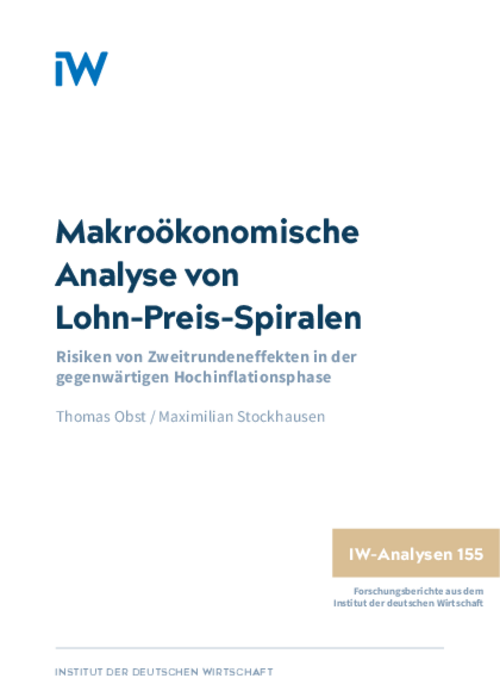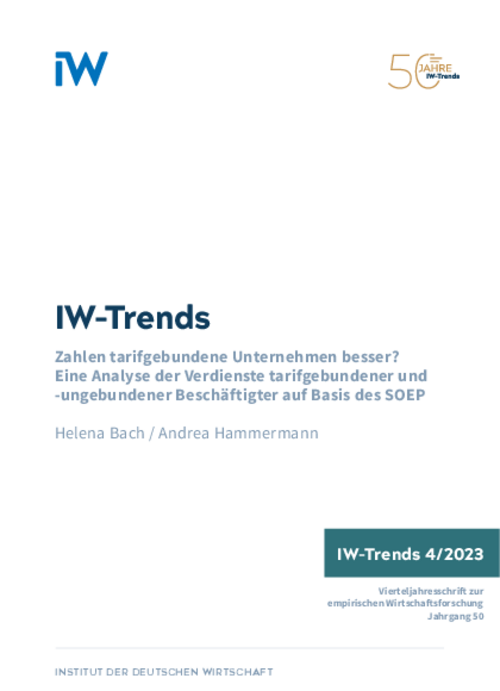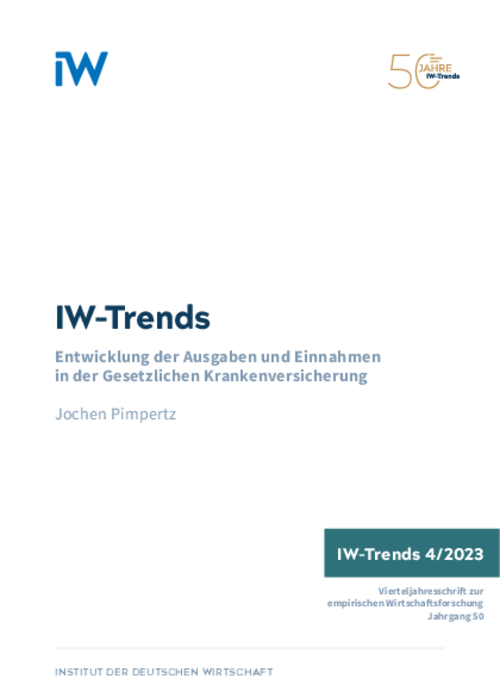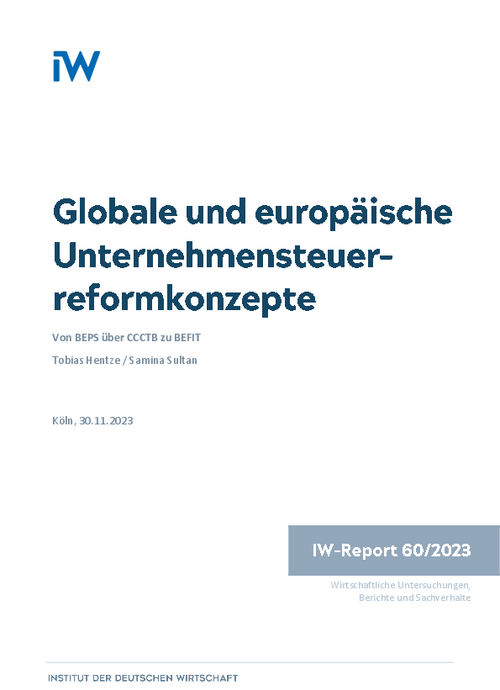The national budgets of the federal government, the states, the municipalities and the social security funds have a volume of just under half of Germany's gross domestic product. After running deficits for decades, the state as a whole recently achieved surpluses before the Corona crisis. Thanks to low interest rates and rising revenues from taxes and social security contributions, Germany did not have to incur any new debt. However, the Corona crisis has again led to rising government spending, lower tax revenues and thus higher government debt overall, although the scope for government investment is limited by the debt brake. Germany currently has a debt level of more than two trillion euros.
Distribution and Public Finances

About the topic
In addition to the openly disclosed debt, implicit debt lies dormant in the social system in the form of unfunded benefit commitments for pension, health and long-term care insurance. Germany currently spends around one-third of its economic output on social benefits, which already puts it in the lead among industrialized nations. Demographic change will place even greater demands on the social systems in the future.
The development of income and wealth inequality is the subject of much controversial debate in Germany. Although the inequality of disposable household incomes in Germany is higher today than it was at the beginning of the 1990s, it has not changed significantly since 2005. In an international comparison, it is low. For example, the top ten percent receive just over 30 percent of incomes. The wealthiest ten percent own around 60 percent of total assets. Consequently, wealth is distributed more unequally than disposable income. However, the upper class is not quite as aloof as these figures suggest: A large proportion of wealth is tied up in businesses that provide the livelihood for many millions of people in the form of jobs.
Due to technological progress, companies are increasingly looking for more highly qualified employees - with correspondingly higher salaries. At the same time, low-skilled workers face greater competition from workers from abroad. Because of these and other trends, income distribution in Germany - as in all industrialized countries - widened in the 1990s and up to the mid-2000s. Unlike most other countries, however, Germany was recently able to slow the income drift and fix it at the 2005 level. The good economic development and the unprecedented reduction in unemployment have improved the living situation of millions of people and stabilized income levels.
The state intervenes more strongly in income distribution in Germany than in many other countries, so inequality in Germany is low. As convoluted as the effects on redistribution are in detail, the result is clear: Those who earn more receive less state pay and pay higher taxes. Conversely, the less citizens earn, the more they receive from the state. The strong shoulders thus bear a heavier burden.


A Macroeconomic Analysis of Wage-Price Spirals
The subject of this Analysis is the forms that wage-price spirals can take and how they influence macroeconomic stability and inflationary trends in Germany.
IW

Pharmaceutical industry: Increasing pressure on the labor market
The shortage of skilled workers poses significant challenges for pharmaceutical companies in Germany and is expected to become increasingly problematic in the context of demographic changes. Concerning Germany's positioning in the international competition ...
IW

Do Companies Bound by Collective Agreements Pay Better?
When discussing the gradual erosion of collective bargaining coverage, reference is often made to the importance of collective agreements in securing high salaries for employees.
IW

Expenditures and Revenues in Germany’s Statutory Health Insurance
Almost annually recurring deficits in Germany’s statutory health insurance system have led to a steady rise in the contribution rate, a percentage of earned income.
IW













